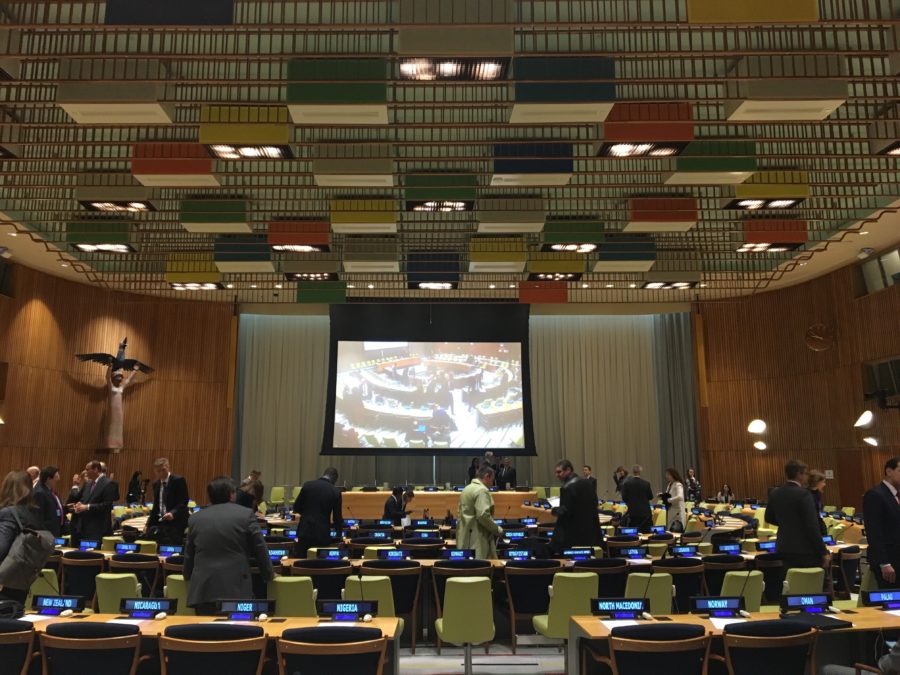29th April 2019 Geneva, Switzerland
Disarmament blog: preparing for the NPT Review Conference

The third session of the Preparatory Committee for the 2020 Review Conference of the Treaty on the Non-Proliferation of Nuclear Weapons opens today at UN Headquarters in New York. (Otherwise known as the NPT RevCon PrepCom; while we work tirelessly against the proliferation of nuclear weapons, we’re quite happy to proliferate jargon.)
Over the next two weeks, the 191 parties to the Treaty will set out their assessment of how the Treaty has been implemented and what we should do, collectively, to strengthen it further in the coming five years.
Most countries agree that the NPT has been an astonishing success over the last fifty years. It has severely limited the spread of nuclear weapons, while providing a framework for the safe sharing of civil nuclear technology (for energy, agricultural, environmental and medical uses, amongst others), and for huge reductions in the numbers of stockpiled nuclear weapons from their 1980s peak. But many want to see more progress on disarmament, and on the establishment of a zone free of weapons of mass destruction in the Middle East as mandated by the 1995 Review Conference; the context for each is hardly benign. And there are difference of opinion about how to handle the North Korean nuclear weapons programme, developed in contravention of its NPT obligations, and how to give assurance about Iran’s nuclear ambitions.
The UK will be contributing to all these debates, of course. We will present our work on supporting the peaceful uses of nuclear energy in Nigeria, and how we manage our domestic nuclear industry. Significantly, we will also be publishing a draft of our National Implementation Plan – a commitment from the Action Plan agreed at the 2010 RevCon. We hope to hear the reactions and feedback of civil society and other parties to inform the final version that we’ll submit at next year’s RevCon.
The PrepCom is asked to produce consensus recommendations to the RevCon on these substantive issues, though that’s never actually been achieved and there’s no reason to think this year will be any different. The main job of the PrepCom is somewhat more prosaic: agreeing how the RevCon will conduct its business. That means deciding on an agenda, the rules of procedure, the structure of the Main Committees and subsidiary bodies, and so on. These are not the weighty issues that will take up the most time in statements and at side events, but this is the oil that greases the gears of diplomacy; without it the machinery seizes up.
One such important question is who will chair the RevCon. Traditionally the Group of the Non-Aligned Movement and Other Countries (NAM) provides the RevCon Chair, rotating around its various constituent geographical groups. In 2020 it is the turn of the Latin American Group, who have nominated Ambassador Rafael Grossi of Argentina. The coordinator of the NAM, Venezuela, however, has yet to to notify the other parties to the Treaty of the nomination and ask for their endorsement. It is really important that this step is taken at this meeting, to allow Ambassador Grossi to consult and prepare properly in good time ahead of the RevCon.
We’ll also have another meeting of senior officials of the P5 countries, following on from our meeting in Beijing in January, to continue our dialogue on the international security situation and our nuclear doctrines and policies, and to discuss what the P5 can do together to contribute to the NPT Review Cycle. This will be the last meeting convened by China before they hand over to the UK to coordinate the P5 process through to the RevCon. It’s going to be a busy and important year for the nuclear non-proliferation regime.
thank to share :))